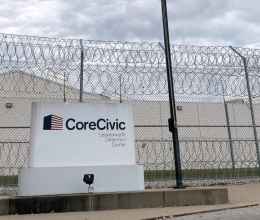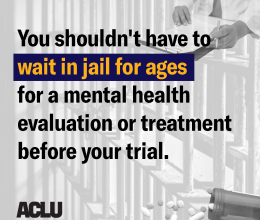
The Impacts of Cash Bail: How it Harms Poor Individuals, People of Color, and Undermines Civil Rights
In recent years, people have been talking a lot about cash bail and how it affects folks who don't have a lot of money or who are from communities that face discrimination, and the cash bail system that we see across the U.S. has come under scrutiny. Cash bail imposes economic hardship on marginalized communities, disrupts entire communities, and has overwhelming impacts on communities of color. Let's break it down and see why it's such a big deal.
Not being able to afford to pay bail has huge impacts on every aspect of life. Think about it… if you are living paycheck to paycheck and have to come up with money for bail, you might have to sacrifice paying for things like groceries or utilities in order to pay rent and keep a roof over your head. If you can’t afford to pay bail, you end up stuck behind bars and away from your job. This increases your chances of losing that job and the ripple effects just continue to spread. If you have kids, you have to find someone in your family or community to watch over them while you’re in pretrial detention. This adds stress on families and support communities, and this impacts Black and Hispanic folks especially hard, making the inequality gap even wider.
We have other options without cash bail being the only answer:
- Get out without bail: You promise to show up in court, and they let you go.
- Fair assessments: They look at your situation, not just your bank account, to decide what to do.
- Resource help: Programs help you deal with your issues and make sure you show up for court.
A lot of people that do not support cash bail argue that pretrial incarceration lowers homicide rates. This narrative is false, and most places in the U.S. that have the highest homicide rates still utilize cash bail. There is no connection between cash bail and lowering homicide rates. Instead of making things even harder for impacted and marginalized communities, we should be investing in these communities. Research shows that local investment in communities that need it the most does have an impact that lowers homicide rates. Cash bail does not make significant profits for states that still follow cash bail practices, but investing in communities that need local investment the most has shown to have positive impacts on lowering homicide and crime rates.
In Kansas, most people agree that cash bail needs fixing - nearly 70% of Kansans! A bunch of folks from all different backgrounds support changes to the system. It doesn’t matter what county you are from, it doesn’t matter if you’re in rural Kansas, metro areas, or suburbs – because this affects us all. Fixing cash bail isn't just about money – it's about making things right and treating everyone equally. It’s about trust, fairness, and making sure everyone gets treated the same, no matter how much money they have in the bank. It's a step toward justice for all.
Related content

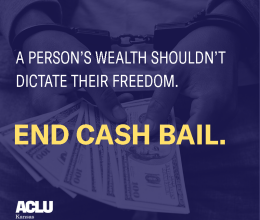
Bail: Wealth-based Pre-trial Release
August 18, 2022ACLU of Kansas sues over unconstitutionally long wait times for...
May 26, 2022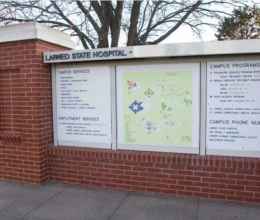
Lawsuit says Kansas must tackle nearly yearlong wait times at...
May 26, 2022
ACLU sues Kansas over excessive wait times at understaffed Larned...
May 26, 2022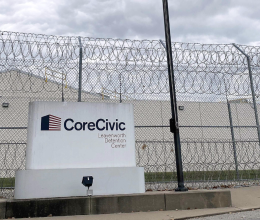
CoreCivic plans for ICE facility in Kansas have generated public...
April 8, 2025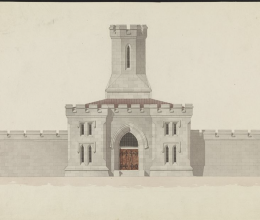
This Kansas town knows prisons. It doesn’t want a for-profit...
April 6, 2025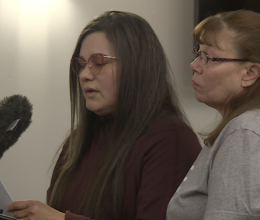
Opponents of CoreCivic packed Tuesday night's Leavenworth...
March 25, 2025